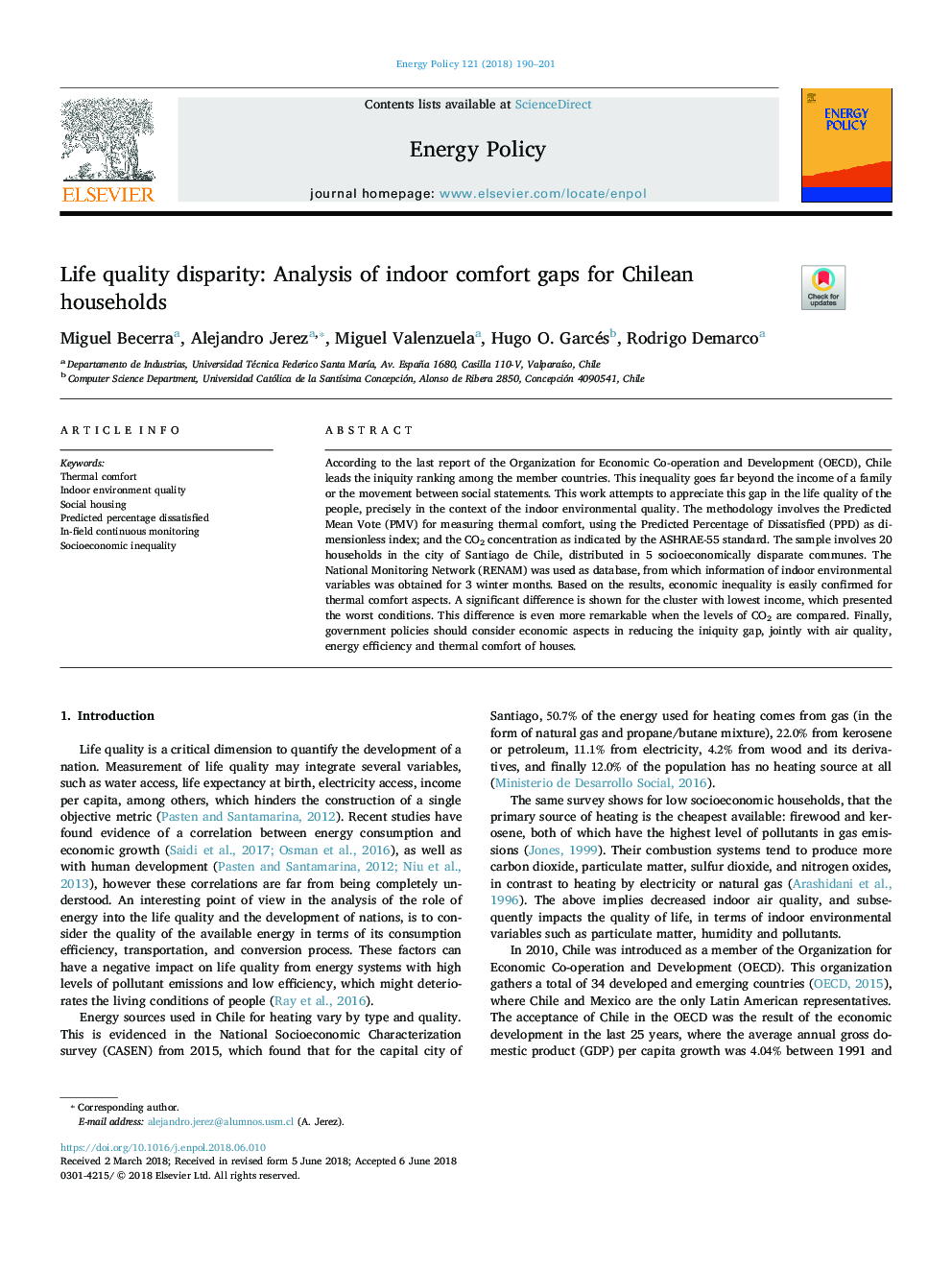| Article ID | Journal | Published Year | Pages | File Type |
|---|---|---|---|---|
| 7396739 | Energy Policy | 2018 | 12 Pages |
Abstract
According to the last report of the Organization for Economic Co-operation and Development (OECD), Chile leads the iniquity ranking among the member countries. This inequality goes far beyond the income of a family or the movement between social statements. This work attempts to appreciate this gap in the life quality of the people, precisely in the context of the indoor environmental quality. The methodology involves the Predicted Mean Vote (PMV) for measuring thermal comfort, using the Predicted Percentage of Dissatisfied (PPD) as dimensionless index; and the CO2 concentration as indicated by the ASHRAE-55 standard. The sample involves 20 households in the city of Santiago de Chile, distributed in 5 socioeconomically disparate communes. The National Monitoring Network (RENAM) was used as database, from which information of indoor environmental variables was obtained for 3 winter months. Based on the results, economic inequality is easily confirmed for thermal comfort aspects. A significant difference is shown for the cluster with lowest income, which presented the worst conditions. This difference is even more remarkable when the levels of CO2 are compared. Finally, government policies should consider economic aspects in reducing the iniquity gap, jointly with air quality, energy efficiency and thermal comfort of houses.
Related Topics
Physical Sciences and Engineering
Energy
Energy Engineering and Power Technology
Authors
Miguel Becerra, Alejandro Jerez, Miguel Valenzuela, Hugo O. Garcés, Rodrigo Demarco,
